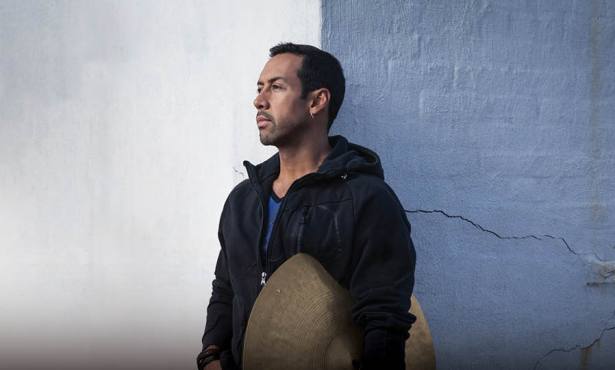Josef Woodard’s Must-See Films
A Handful of Noteworthy, Original, and Dramatically Powerful Movies

With all due respect to, and due excitement about, the flow of first-name-basis Hollywood celebs passing through our town in the next week and a half courtesy of the Santa Barbara International Film Festival (SBIFF) — Denzel, Jeff (“the Dude”), Ryan, Emma, Isabelle, Casey, Michelle — some of the most substantial material in the festival will hail from and expose us to life beyond U.S. borders … make that our suddenly inflamed and irradiated borders. It was ever thus at SBIFF, which wears both its Oscar-season Hollywood harvest and its international cinema integrity proudly, and maybe all the more this year, just at a time when xenophobia and other dangerous energies have invaded the White House.
That said, of a dozen films I screened before opening night of the festival, a handful stood out as special and noteworthy of seeking out, not only on grounds of filmic originality or dramatic powers, but also for their ability to transport our American-centric sensibilities to other lands and outlooks. Movie passes become valuable travel documents, with no need for hang-ups or lawyers in airports.
This year, one of those designated “exotic” locations is Scandinavia, via a special Nordic Cinema sidebar, bringing to the forefront a strong, if small-ish, cinematic culture we’ve seen in limited doses in the past festivals. The complexity of intercultural relations between Sweden and Lappland (a k a its more accurate and politically correct name, Samiland) — which stretches across the top of Norway, Sweden, and Finland and is home to what has been called the world’s last remaining “white” indigenous people — is key in a sensitive way in the fascinating film Sami Blood. Director Amanda Kernell’s stylistically magnetic and introspective tale deals with a young Sami woman’s indoctrination and alienation from her native heritage, lured into the presumed “civility” of Swedish life. The choice to use the unique chanting Sami “joiks” in the soundtrack and the rugged landscape of the northern, reindeer-herding terrain add to the film’s poignancy and sense of identity lost.
Another kind of force cultural conflict is in focus with director Wiktor Ericsson’s engaging film Strawberry Days, about Polish migrant farmworkers in Southern Sweden and the loaded Romeo-and-Juliet-like romantic heat between a young Pole and his teenaged Swedish overseer. Sparks fly, as do hatred and racist-societal tensions.
Contrasts between stunning scenery and broiling human frictions is again part of the equation in Norwegian director Kjersti Steinsbø’s Revenge. For all the bracing beauty of the Western Norwegian fjordland of the film, its tale of a woman’s elaborate scheme for exacting revenge against a sexual predator works our senses over on multiple fronts.
Revenge takes a different form in a very different landscape in the Spanish thriller The Fury of a Patient Man. Raúl Arévalo’s coolly semi-sordid tale opens with action — a bank robbery turned bloody — and spans out into a labyrinthine plot involving a prisoner, a doggedly vengeful but taciturn peripheral victim, a female interest in the middle, and enough post-noir-ish mayhem to suggest a Coen Bros. romp minus the dark humor.
A harrowing but compelling doc in the program, Kangaroo (in a world premiere for directors Kate McIntyre Clere and Mick McIntyre) is one of those deeply disturbing revelatory chronicles of a tragedy much of the world is unaware of: the mass slaughter and wholesale “brutal, barbaric” killing of that Aussie icon, kangaroos, for meat — for pet food and now for exotic game carnivores worldwide. California (blessed California) has a ban on kangaroo products, but the market in China and elsewhere ensure that “kangaroos are doomed.” The disparity of majestic aerial (drone) shots of kangaroos bounding through open terrain and the grisly realities of kangaroo holocaust — including the killing of baby joeys via “blunt force” means of bashing them against trucks — make for a doc both hard to watch and hard to ignore the larger implications.
Among the crop of American indie films (viewed so far), one of the standouts is writer/director Paul Shoulberg’s thoughtful and involving The Good Catholic. The film dares to deal with a young priest’s crisis of faith and the scent/lure of romantic love of a young priest (Zachary Spicer) with the free-spirited Jane (Wrenn Schmidt), with the wise older priest played by Danny Glover and comic-relief delivery man John C. McGinley (but with a moving message about the true meaning of “compassion”) adding intrigue to the mix. Short of Martin Scorsese films, few American films dare to take on the religious subjects in any serious or probing way, making this indie gem worth a look and reflective appreciation.



